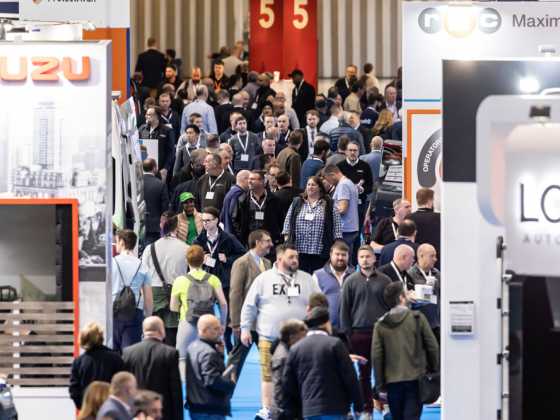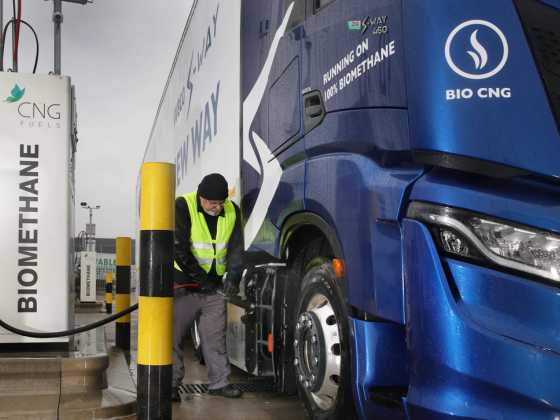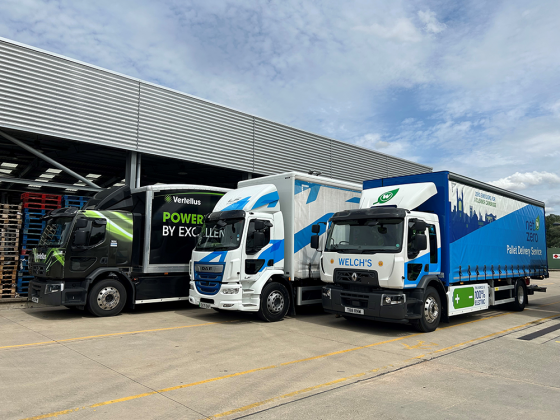What does the new RTFO mean for biomethane?

Changes to the Renewable Transport Fuel Obligation (RTFO) came into force in April. Charlotte Morton, chief executive of the Anaerobic Digestion & Bioresources Association (ADBA), analyses what they will mean for the generation of biomethane as a transport fuel
Since changes to the Renewable Transport Fuel Obligation (RTFO) came into force in April, the green gas industry has been analysing what they will mean for the generation of biomethane as a transport fuel.
The RTFO forms part of the government’s 15-year strategy for incentivising renewable transport fuels, which it hopes will build a firm platform for investment in the development of sustainable advanced fuels. The reforms will now obligate fuel suppliers to provide 9.75 per cent of all fuels from renewable sources by 2020, a doubling of the current 4.75 per cent obligation that will then rise to 12.4 per cent of all fuels by 2032, helping to align the RTFO with the government’s Carbon Budgets.
Biomethane produced from organic wastes and energy crops through anaerobic digestion (AD) is one such fuel derived from renewable sources that can help fuel suppliers to meet this new higher target, particularly for heavier vehicles for which electrification is impractical or expensive.
As a low-carbon, low-cost, and technology‑ready transport fuel that can deliver £2.1 billion in CO2-equivalent savings per year and dramatically improve air quality, biomethane is perfectly positioned to play a leading role in helping fuel suppliers to meet these increased targets.
With close to 100 green gas plants across the UK already producing biomethane, the UK AD industry has sufficient capacity today to produce enough biomethane to power 80 per cent of the UK’s entire bus fleet and the potential to produce enough biomethane to power 75 per cent of the UK’s HGVs. It can also be used directly on farms to fuel agricultural vehicles.
My GreenFleet article from last year sets out many more of the benefits that biomethane offers as a transport fuel.
Welcome news
Overall, the AD industry welcomed the reforms to the RTFO and the Department for Transport’s (DfT) increased commitment to supporting low-carbon fuels, which are essential for decarbonising the UK’s emissions-heavy transport sector and meeting our Carbon Budgets. The rising of the obligation for renewable-sourced fuels to 12.4 per cent by 2032 goes beyond what was originally consulted on and should create a positive investment environment for renewable fuels (including biomethane) beyond 2020.
Indeed, we’ve been told that investors understand the RTFO and think it can help bring market stability to UK corporate pension funds. Our market intelligence suggests that on-farm AD plants in particular may be one source of biomethane that offers a lot of opportunity to generate income under the RTFO.
The changes to the RTFO have also seen the introduction of a new sub-target for ‘development fuels’, though contrary to what was initially envisaged by DfT, biomethane is not one of these specified fuels. The reforms have also introduced a cap on crop-derived fuels of four per cent in 2018, reducing in equal increments annually from 2021 to reach three per cent in 2026 and two per cent in 2032; this will have an effect on the feedstocks that AD operators can use to generate biomethane.
One issue of ongoing concern is that the RTFO changes do not go far enough to address the scheme’s fundamental structural issues, particularly the historical variability and volatility of the price of Renewable Transport Fuel Certificates (RTFCs), which are awarded for eligible fuel supplied to meet an RTFO obligation. This uncertainty over the RTFC price has made the RTFO largely unbankable to date, which is why we are calling for amendments or additional measures to bring stability to RTFCs, ideally through a price floor that would guarantee a minimum price.
Low carbon buses
With regard to bus fleets, DfT has confirmed that biomethane supplied via the RFTO can be awarded the Low Carbon Emission Buses incentive under the Bus Service Operators Grant. Refuelling infrastructure grants through the Ultra-Low-Emission Bus scheme are also still available.
Importantly, given the propensity for government support to very quickly dry up at short notice, there is a view in the biomethane‑for-transport industry that there is a strong business case for subsidy‑free biomethane buses. While incentives such as the RTFO are of course important in helping to build markets for renewable fuels, it’s vital for the AD industry to continue to work to bring down costs to make biomethane competitive with other fuels even without government support.
The effects of the new RTFO on the biomethane-for-transport market will be one of the main topics of discussion at UK AD & World Biogas Expo 2018, taking place on the 11-12 July at the NEC in Birmingham. The event, organised jointly by ADBA and the World Biogas Association, will feature panel discussions on the UK biomethane‑for‑transport market, biomethane bus fleets from around the world, and
UK biogas refuelling infrastructure, as well as the latest market and policy updates on the RTFO and other low‑carbon‑fuel incentives. You can register for free at biogastradeshow.com.
There’s certainly plenty to discuss, and with such huge potential for biomethane as a transport fuel both in the UK and around the world, this is an opportunity we cannot afford to miss.
Case study: John Lewis Partnership’s biomethane trucks
The John Lewis Partnership (JLP) currently operates 53 heavy trucks on biomethane, with nine more on order and plans to order a further 68 later this year. The vehicles fill up at a grid-connected filling station at Leyland in Lancashire, and the gas is certified as biomethane via the RTFO. The gas is created from food waste and food processing sources.
The biomethane lorries emit 84 per cent less carbon dioxide than diesel equivalents, noise levels are halved, and driver reaction has been very positive. Although the lorries are more expensive to buy than diesel trucks, the fuel is cheaper, so in the long-term there is a net financial gain. JLP plans to replace the majority of its diesel heavy trucks with gas ones as they come up for replacement.
Justin Laney, general manager of Central Transport at JLP, says: “There were several barriers to overcome before we had a viable alternative to a diesel truck. The last of these was achieving a 500-mile range using compressed gas. Now that’s been overcome, our gas trucks can do the same work as our standard diesel trucks. They have significant environmental and driver benefits and a sound business case.”
Case study: Nottingham’s biogas bus fleet
Nottingham City Transport (NCT) operates the world’s largest fleet of biogas double‑deck buses as part of a £16.8m investment in greener transport for the city.
The 53-strong fleet was funded through a £4.4m grant from the government’s Low Emission Bus Scheme, alongside a £12.4m investment by NCT. The fleet will emit over 3,500 tonnes less CO2, 35 tonnes less NOx and ¾ tonne less particulate matter every year, delivering significant improvements to air quality in Nottingham.
Mark Fowles, NCT managing director, says: “Our biogas double deck-buses are the greenest buses on the road, with significantly lower emissions throughout the entire ‘well to wheel’ process of fuel generation, transportation and use. With NCT now operating 53 of these super environmentally‑friendly buses, we’re delivering cleaner air for Nottingham with the largest fleet of biogas double‑deck buses in the world.






